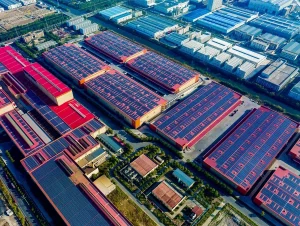
The importance of independent TowerCos in Europe
Neutral telecommunications infrastructure operators are playing, and will continue to play, a decisive role in the development of wireless technologies in Europe, with quantifiable economic and social benefits thanks to the greater efficiency of their facilities and the benefits of the concept of infrastructure-sharing between the various operators.
A recent report entitled “The Economic Contribution of the European Wireless Infrastructure Sector” prepared by Ernst & Young and the European Wireless Infrastructure Association (EWIA) highlights the growing importance of the sector in the European market. The study underscores the benefits of neutral operators, which have gone from holding 17 percent of the market in 2018 to 39 percent in 2023, and could reach 50 percent. These figures underline their increasingly crucial role in the optimisation and efficiency of network infrastructure.
Companies like Cellnex are proving to be essential not only for improving the coverage and capacity of mobile networks, but also for smoothing the transition towards emerging technologies such as 5G and releasing billion-dollar investments from mobile operators to keep apace with constant technological challenges.
The study estimates that the purchase of towers by neutral operators has allowed mobile network operators (MNOs) to release €26 billion since 2018, a figure that has been decisive in allowing MNOs to reinvest those funds in emerging technologies such as rolling out 5G networks and improving the coverage of communication services across Europe. Furthermore, the report estimates that another €28 billion could be freed up with a tower outsourcing rate that could increase to 50 percent.
“Greater outsourcing to independent TowerCos could release an estimated €28 billion of capital, which MNOs can reinvest in their networks, such as to improve coverage and accelerate 5G rollouts” notes the report.
In addition to the economic benefits, independent TowerCos offer significant advantages in terms of efficiency and sustainability. Co-location in existing towers reduces the need to build new infrastructure, which reduces the environmental and visual impact. This approach not only optimises operating costs, but also contributes to faster and more efficient rollouts of networks. Continued investments in new implementations and maintenance, such as the €2 billion annually reported since 2021, demonstrate the commitment of these companies to sustainable and efficient development of network infrastructure. “Independent TowerCos are playing a key role in enabling 5G rollouts and the continued expansion of mobile network coverage; EWIA members alone have invested €2 billion annually in new rollouts, shoring up sites and maintenance since 2021.”
Digital divide
The report states that “Cheaper and faster rollout to rural areas helps to address the digital divide,” referring to the inclusion and social cohesion sought by this digital revolution that Europe is undertaking.
Companies like Cellnex play a vital role in improving connectivity in rural and less economically attractive areas for mobile network operators. In these areas, where rollout costs are high and revenue opportunities limited, the ability of TowerCos to reduce costs and optimise infrastructure is crucial. They facilitate greater coverage and connectivity, ensuring that rural areas are not left behind in the digital revolution.
“Independent TowerCos play an important role in enabling the telecoms sector to make more efficient use of passive infrastructure. The higher utilization rates of independent TowerCos reduce the cost per user, lowering the threshold at which it becomes profitable to improve service coverage,” according to the report’s authors.
Analysts consider that reducing duplication and achieving greater efficiency in infrastructure management also results in a more affordable pricing scheme for the consumer. “Sharing of towers with multiple tenants reduces overall cost for mobile operators, helps improve coverage and reduces consumer prices.”
Despite everything, the sector faces significant challenges that require attention and adaptation. Market competition and consolidation is a crucial aspect, with increased competition expected among MNOs and independent TowerCos. According to the study, this dynamic could lead to greater consolidation and changes in investment strategies in a context in which regulation and government policies will continue to be essential, particularly in aspects such as co-location and rural area rollouts, which require a balance between economic efficiency and equal access. The rapid evolution of wireless technologies, such as 5G and future innovations, poses both challenges and opportunities. Companies in the sector must update their infrastructure and adapt to new connectivity demands. All of this is taking place in an environment in which the climate emergency requires infrastructures to reduce their environmental footprint.
Partner With Us
The Institute for Sustainability Africa (INŚAF) is an independent multi-disciplinary think tank and research institute founded in Zimbabwe in 2010 with the Vision to advance sustainability initiatives for Africa.




